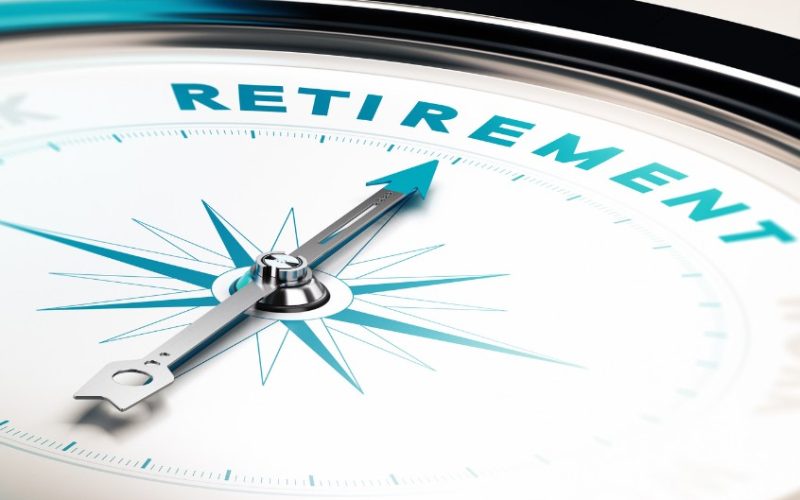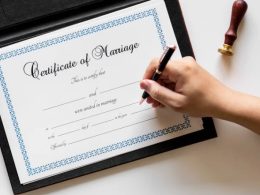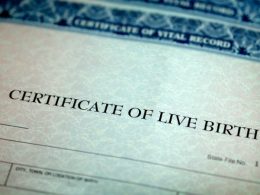Are you dreaming of a comfortable retirement in Canada? If so, then the first question on your mind might be: how much money do I need to retire here? It’s an important question that requires careful planning and consideration. After all, retiring means relying solely on your savings instead of a steady income. So, to live out your golden years without financial stress or worry, it’s crucial to determine what a good retirement income looks like for you specifically. In this step-by-step guide, we’ll explore everything from estimating future expenses to seeking advice from financial advisors – so keep reading!
What is a Good Retirement Income?

Retirement income is the amount of money you’ll need to live on during your retirement years. It’s important to note that a good retirement income will vary depending on individual circumstances, such as age, health status, personal expectations and where you plan to live in Canada.
Generally speaking, a good retirement income should cover all necessary expenses without sacrificing quality of life. This includes housing costs like rent or mortgage payments, daily living expenses like food and utilities, transportation expenses like car maintenance or public transit fares – as well as any unanticipated expenses or emergencies.
When determining what constitutes a “good” retirement income for yourself and your family, it’s also important to consider factors such as inflation rates and market trends over time. While some people might be comfortable with less than $40k per year in retirement income – others may require double this amount to maintain their desired lifestyle.
Ultimately though – the definition of a “good” retirement income is entirely subjective based on each person’s unique financial needs and goals.
How Much Do I Need to Retire Canada?
The act of retirement planning can be challenging, especially when estimating your financial requirements. The truth is, there is no one-size-fits-all answer to the question of how much you need to retire in Canada. It varies greatly depending on your lifestyle, current financial situation and future goals.
To start estimating your retirement savings needs, consider what kind of income you would like during your retirement years. A good rule of thumb is that retirees should aim for an income that replaces 70-80% of their pre-retirement income. This includes any government benefits such as CPP or OAS.
Once you have determined your desired annual income during retirement, the next step is calculating your current financial situation. Take stock of all assets including investments and property and subtract any debts or liabilities to get an accurate picture.
Calculating the Current Financial Situation

Calculating your current financial situation is a crucial step toward determining how much you need to retire in Canada. To begin with, make a list of all your assets and liabilities, including savings accounts, investments, debts, mortgages, and personal loans. Subtract the total amount of your liabilities from that of your assets to get an estimate of your net worth.
Next, evaluate your monthly income and expenses by reviewing bank statements or credit card bills for at least three months. This will help you identify any areas where you can cut costs or increase savings. Keep track of discretionary expenses like entertainment or dining out as these are often overlooked but can add up quickly over time.
Another factor to consider is inflation rates – calculate how much money you will need in today’s dollars versus future dollars when it’s time to retire.
Review any pension plans or retirement benefits available through work. These may include government programs such as CPP (Canada Pension Plan) or OAS (Old Age Security), which could affect how much money you’ll need to save on your own.
By taking an honest look at your finances now and understanding what resources are available for retirement planning purposes later on down the line – it’s easier than ever before!
Estimating Future Expenses
The next important factor in determining how much you need to retire comfortably in Canada is by estimating future Expenses. Estimating your future expenses is a critical step in determining how much you need to retire comfortably in Canada. It involves taking stock of all the things you may spend money on during your retirement years and coming up with an estimate of what those expenses might be.
One way to start estimating your future expenses is by considering your current spending habits. Take a look at how much you’re spending on things like housing, utilities, food, transportation, and entertainment each month. These costs are likely to continue into retirement, so it’s important to factor them into your calculations.
You’ll also want to think about any new expenses that may arise during retirement. For example, if you plan on travelling more or pursuing expensive hobbies, these costs will need to be accounted for in your budget.
Healthcare is another expense that tends to increase as we age. While Canada has a public healthcare system that covers many medical services, there are still some out-of-pocket costs associated with healthcare that you should consider when estimating future expenses.
Keep in mind that inflation can have a significant impact on the cost of living over time. When estimating future expenses for retirement purposes, it’s generally recommended that you assume an annual inflation rate of around 2%.
By taking all these factors into account and creating a detailed estimate of your anticipated future expenses now – while being realistic about potential unforeseen circumstances – you can better prepare yourself financially for the next chapter of life: Retirement!
Seeking Advice from a Financial Advisor
Seeking advice from a financial advisor is a crucial step when planning for retirement. A financial advisor has the expertise and knowledge to guide you through the complex world of investments, savings, and retirement planning.
Before seeking advice from a financial advisor, it’s important to do your research and find someone who is reputable, experienced, and trustworthy. Look for advisors who specialize in retirement planning and have a fiduciary responsibility to act in your best interest.
During your meeting with the financial advisor, be prepared to discuss your current financial situation and future goals for retirement. The advisor will ask questions about your income, expenses, assets, debts, and any other relevant information that can help them develop a personalized plan for you.
Based on this information, the advisor will recommend different investment strategies that align with your risk tolerance level to maximize returns while minimizing risks. They may also suggest various saving options such as RRSPs or TFSAs.
Creating a Retirement Budget and Plan

Creating a comprehensive retirement budget and plan is crucial to achieving a comfortable retirement.
- The first step in creating a budget is to determine your expected income from all sources, including pensions, investments, and government benefits.
- Next, you will need to estimate your expenses during retirement. This includes necessities such as housing, food, transportation and healthcare costs. You should also consider discretionary spendings like travel or hobbies that may become more important in your golden years.
- Once you have determined your income and expenses, it’s time to create a realistic retirement plan that takes into account any potential changes in the economy or personal circumstances. This could include diversifying investments or adjusting savings goals based on shifting priorities.
- It’s important to regularly review and adjust your budget as needed throughout retirement. Unexpected events can occur at any time which may require additional planning or financial adjustments.
- Working with a financial advisor can help ensure that you are making informed decisions about how best to allocate resources for an enjoyable and secure future during retirement years.
Conclusion
Determining how much you need to retire in Canada can feel overwhelming. However, by taking the time to calculate your current financial situation and estimate future expenses, seeking advice from a financial advisor, and creating a retirement budget and plan, you can set yourself up for success.
Remember that everyone’s retirement needs are different based on their lifestyle goals and personal circumstances. A good retirement income allows you to maintain your desired standard of living without running out of money during your golden years.
By following these steps and staying committed to saving for retirement, you’ll be well on your way to achieving the comfortable post-work life that you deserve.
FAQs on how much money do i need for retirement
1. How much does the average Canadian need to retire comfortably?
According to recent research, Canadians estimate that they will require $1.7 million to retire. Depending on your lifestyle, expenses, and retirement objectives, a million dollars may not be enough for you to retire comfortably.
2. What is considered wealthy retirement in Canada?
In Canada, you need to have a net worth of at least $1 million to be regarded as wealthy. Despite this, a large portion of rich Canadians has comparatively ordinary lives. Their primary residence, investments, retirement benefits, or possibly a combination of the three, make up the majority of their net worth.
3. What is a very high net worth in retirement?
A retiree with assets worth at least $1 million is considered to be high net worth. All of their possessions, from money to real estate, are included in their assets.
4. Can I retire with $500000 in Canada?
If you assume that $500,000 will last you for 25 years and that you will retire at age 65, your annual retirement income will be $20,000 each year. Depending on your monthly expenses, it can be tough to survive on this because it is less than the typical Canadian income.










